It is now 15 years since Fenway Sports Group completed their takeover of Liverpool Football Club, and 10 trophies later their ownership has proved a resounding success.
If John W. Henry and Tom Werner were somehow unaware of the scale of the challenge that was set to greet them when they received the keys to Liverpool Football Club after an emotional and highly contentious High Court case in October 2010, that would change after less than 48 hours on Merseyside.
It was Sunday, October 17, and Henry, then 61, and Werner, 60, were all smiles as they arrived at Goodison Park for Liverpool’s Premier League clash against Everton.
After initially deciding not to attend the 214th Merseyside Derby, the duo’s late U-turn came at the end of a taxing week in London’s High Court, battling to finalise a £300 million takeover.
But the smiles were quickly wiped off the faces of the Fenway Sports Group chiefs, then known as New England Sports Ventures (NESV), as goals from Tim Cahill and Mikel Arteta condemned Roy Hodgson’s side to a 2-0 defeat, leaving them 19th in the Premier League table after just one win from the opening eight games.
Liverpool in 2010: A club in disarray
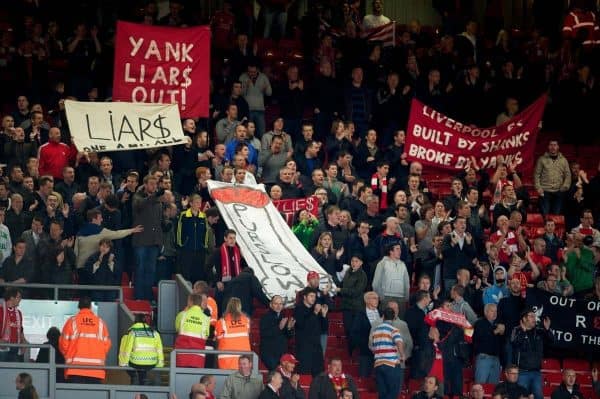
“It was a very grim period to be a Liverpool fan, and often hard to see the light at the end of the tunnel,” says supporters’ union Spirit of Shankly’s Gareth Roberts of the weeks and months before FSG’s takeover.
“Football is supposed to be our escape from the stresses and strains of life, but in that period, it was the stress of life.
“The conversation around the club, the owners, the perilous financial situation and what we could do about it – it was all the supporters talked about 24/7.
“Liverpool were breaking records for all the wrong reasons, we had a manager who actively called us out for protesting against the owners, we had players who should never have been allowed to pull on the red shirt, and we had fans at each other’s throats in the stands at times.”
After David Moores sold a majority stake to Americans Tom Hicks and George Gillett in February 2007, Liverpool rapidly declined both on and off the pitch, saddled with debt and plans to leave Anfield for a new stadium in Stanley Park.
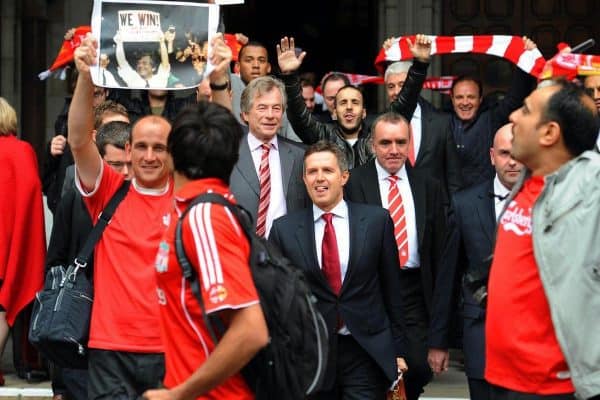
It meant that by the time Hicks and Gillett were chased out of town by Kopites in the autumn of 2010, a distressed sale via the High Court meant FSG, who also owned the MLB franchise Boston Red Sox, were able to acquire the club for well below its market value.
“When they looked at the cities of Liverpool and Boston, the history of both clubs and what they have been able to achieve, I think they saw it as a huge opportunity,” former Liverpool CEO Peter Moore tells This is Anfield.
“Was it an undervalued asset? You bet.
“They also had studied the revenue opportunities that the Premier League had to offer. You don’t get that guarantee of media money in Major League Baseball.
“I think they were also absolutely transfixed on the chance to build a global sports entity. As big as the Red Sox are, they could never be that.
“It is very difficult for a baseball team to have a global presence, and so I think all of that came together, and it was too good an opportunity to miss out on. They jumped in and saved the club financially.
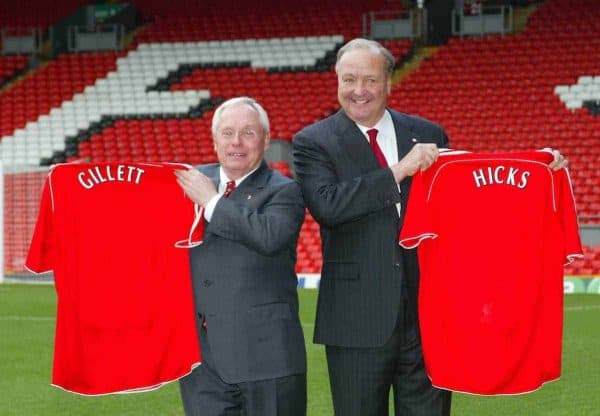
“They also saved Anfield. Let’s not forget, Hicks and Gillett were determined to put a spade in the ground in Stanley Park and build a new stadium.
“On his first visit to Anfield, John famously walked out onto the pitch at Anfield and said, ‘why would we ever leave here?’.
“It was a very similar situation with the Red Sox. When I was living in Boston, there were a lot of conversations about knocking down Fenway Park and rebuilding a more modern stadium, as the New York Yankees did.
“In the end, they retained Fenway Park and found ways of seeking out every opportunity to drive revenue from every corner of the ballpark – and I think they did the same with Anfield.”
Restoring the heart of Liverpool FC
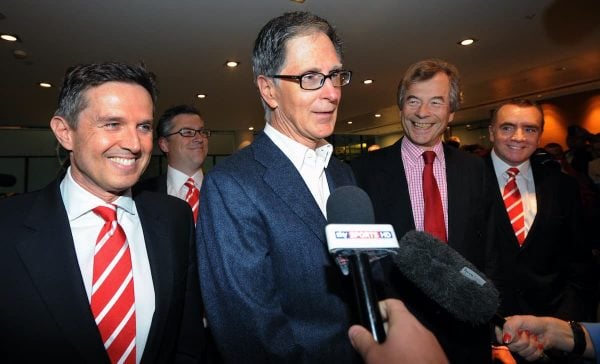
When FSG took over the Boston Red Sox in 2002, the Old Towne Team had punched below their weight for decades – best summed up by their failure to win a World Series since 1918.
But within two years of arriving they had banished the so-called ‘Curse of the Bambino’ and led the Red Sox to a first World Series in 86 years.
It was a similar story when Henry and Werner arrived at Anfield. Liverpool’s painful wait for a top-flight league title had stretched into the 21st year, with the last triumph coming in May 1990 when Sir Kenny Dalglish‘s side finished nine points ahead of Aston Villa.
“After the complete ineptitude of the predecessors, Hicks and Gillett, who completely misunderstood what it took to manage a sports club that meant more than the sport itself and was so important to us in Liverpool and to a global fanbase, FSG were a breath of fresh air,” adds Moore.
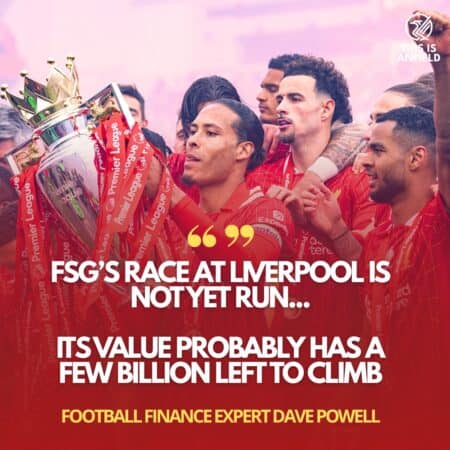
“If you remember the state we were in and how close we were in that time to going into administration, it wasn’t going to be easy.
“But I knew this was an ownership group that knew how to be successful, knew how to be patient and knew how to build using data, science and all of the modern technologies they had deployed with the Red Sox.
“It was exciting for me as a fan…and I actually got to know the inner circle of a company in New York who kind of brokered the deal, and they were very confident this was the right ownership group for Liverpool.”
FSG’s first task was to restore stability to Anfield and position the club to compete with the Premier League‘s elite.
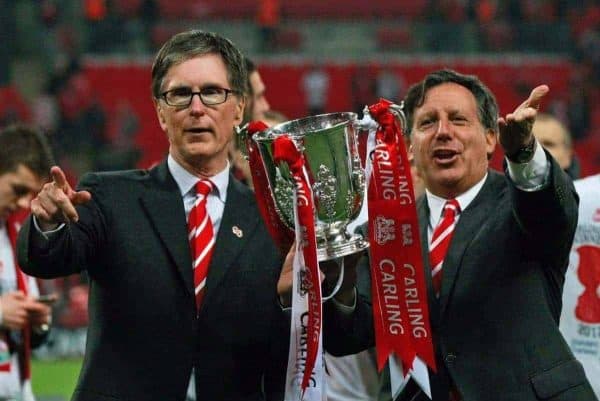
“FSG were pretty clear from the outset that the model that they would be pursuing was one where financial stability was at its core,” explains football finance expert Dave Powell.
“That would then underpin financial success, with the two planned to go hand in hand, one supporting the other.
“It’s hard, with that in mind, to argue that the original vision of what Liverpool would be hasn’t been achieved by FSG.
“They wanted to win trophies – of course, every ownership group does – but the valuation growth over the last 15 years, with the club now worth around £4.5 billion to £5 billion from a £330 million purchase price, has probably surprised even them.”
£77 tickets, European Super League and U-turns
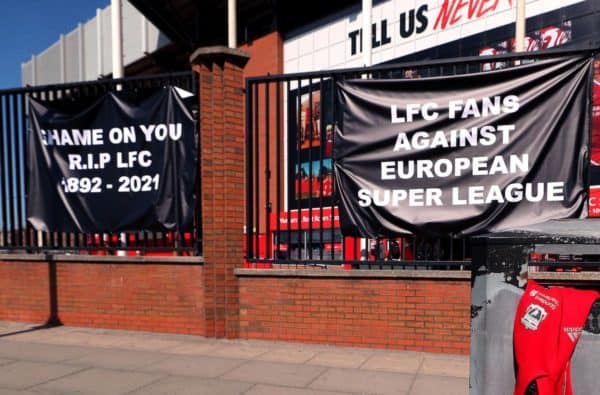
While FSG have made several errors of judgement, from plans to increase ticket prices to £77 in 2016 to the ill-fated European Super League fiasco five years later, backlash from groups like Spirit of Shankly and Spion Kop 1906 have resulted in U-turns, demonstrating the owners’ willingness to listen.
“FSG have undoubtedly made mistakes and missteps and simply not read the room on a number of occasions,” says Roberts. “But ultimately they have recognised when they are fighting a losing battle.
“No fan wants to turn their back on their own team and walk out of the ground like 10,000 of us did in 2016 when the owners proposed £77 tickets – an unprecedented action in the history of the club.
“The crucial thing was that they listened and scrapped the plan eventually.
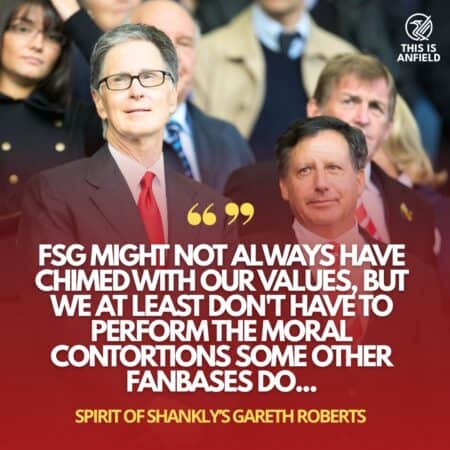
“Putting Liverpool’s name to the European Super League proposal was another huge mistake that was totally out of touch with not only supporters but also many people who worked for the club.
“Again, the strength and depth of feeling displayed led to an apology, a U-turn and the idea was rightly binned.”
Even though there have been blunders along the way, some greater than others, there is no denying how successful FSG’s reign at Anfield has been.
‘This Means More’
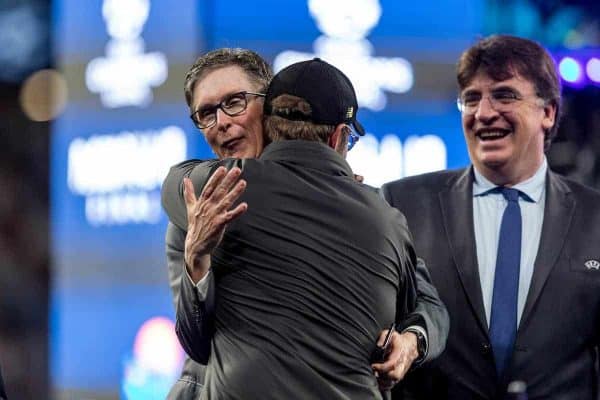
Over the last 15 years, the American sports conglomerate have helped Liverpool return to its perch in English football through success in the boardroom and forming strong relations with a catalogue of blue-chip companies, while also delivering on-pitch triumphs, including a Champions League win and the club’s first Premier League title in 30 years.
After posting record revenues of £614 million in 2024, industry experts estimated Liverpool to be the fourth-most valuable football club in the world, enabling a summer spending spree of more than £400 million.
After winning the Premier League and returning to the Champions League last season, Liverpool’s revenue for the 2024/25 campaign could surpass £700 million when figures are released at the start of 2026.
“FSG have always been an ownership group that talked openly about building a self-sustaining model that allows the revenue to cover costs,” explains Moore.
“They have managed on a multi-year strategy this past summer transfer window following the growth of commercial revenue.

“I think they have always prided themselves on the fact that they are up against state-supported football clubs.
“You’re up against clubs that have ownership groups that are very different to a bunch of men and women in Boston who love sport and are willing to write cheques to support it.
“When I was there, we coined this phrase ‘This Means More’ as part of a marketing slogan, but it became emblematic and symptomatic of what the football club is all about.
“I think they have done it the right way, is what they would say. I’m not accusing anyone for doing it the wrong way, but this is something that is sustainable and has a multi-year strategy.”
“FSG’s race at Liverpool is not yet run”
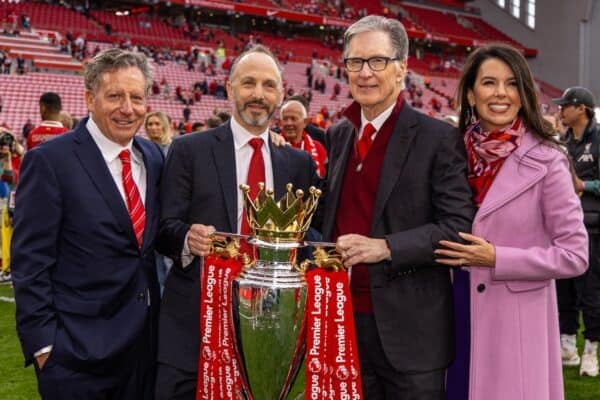
Wednesday marks 15 years since Henry was congratulated by Martin Broughton outside of London’s High Court after FSG were officially handed the keys to Anfield.
But how are the Americans viewed by supporters?
“I think the easiest thing to say is: who would you swap them for?” says Roberts. “They have run Liverpool sensibly, sometimes conservatively, but there has never been the peril of the Hicks and Gillett era.
“Personally, I find the idea of a despotic nation-state owning the club abhorrent. FSG might not always have chimed with our values, but we at least don’t have to perform the moral contortions some other fanbases do to justify their direction.
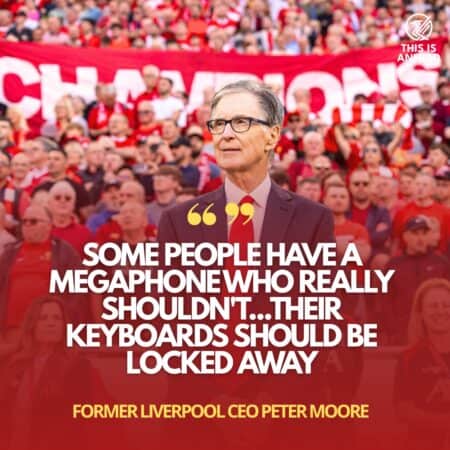
“Back when NESV came to the table, we wanted Liverpool to live within its means – for revenue generated to be spent on the pitch. We didn’t want a leveraged buyout. We didn’t want the club to be saddled with huge debt. We wanted a bigger stadium and success.
“It’s job done, isn’t it?”
Moore, meanwhile, cracks a smile: “They’re misunderstood by – let’s call it what it is – the ‘FSG Out’ crowd. But I think the great majority of us, maybe the older generation who have seen a lot worse than all of this, smile at it and shake our heads.
“It’s a little bit because of the poison that is social media; some people have a megaphone who really shouldn’t have a megaphone…and their keyboards should be locked away.”

For many, though, the burning question is whether FSG’s story is entering its final chapters or simply moving into its next phase?
“The FSG race at Liverpool is not yet run,” concludes Powell.
“The value proposition of the football club still has some way to being fulfilled, and there is little sign of them being an ownership group who are preparing for a sale.
“It is a safe bet in their portfolio as the value probably has a few billion left to climb before it tops out.”
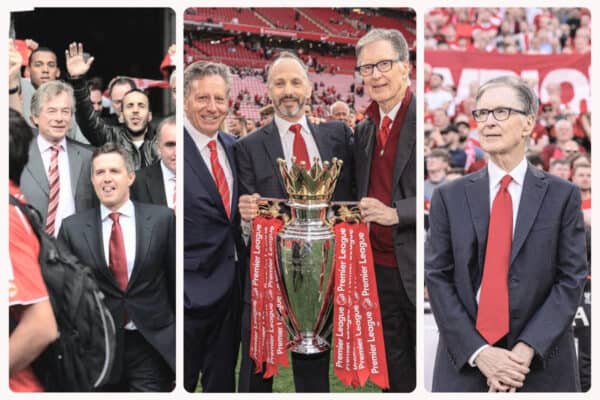
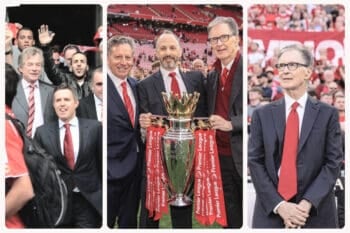
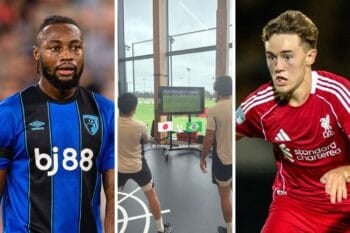
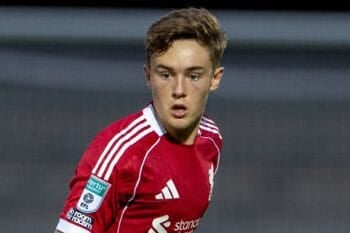
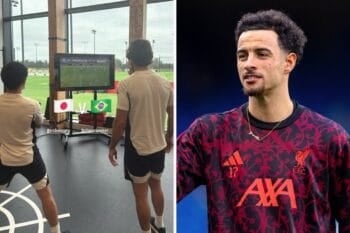
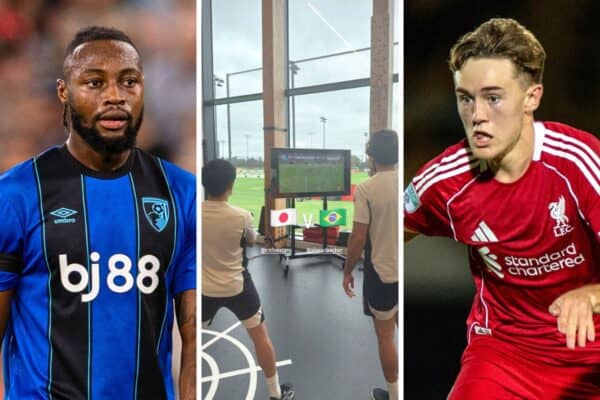
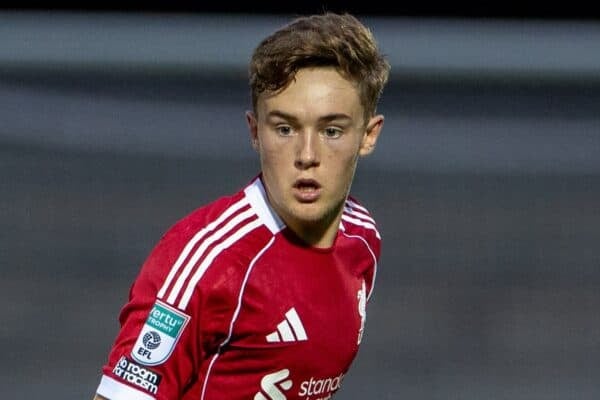
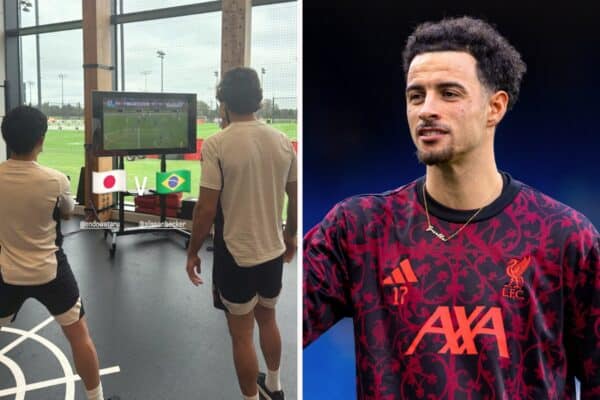


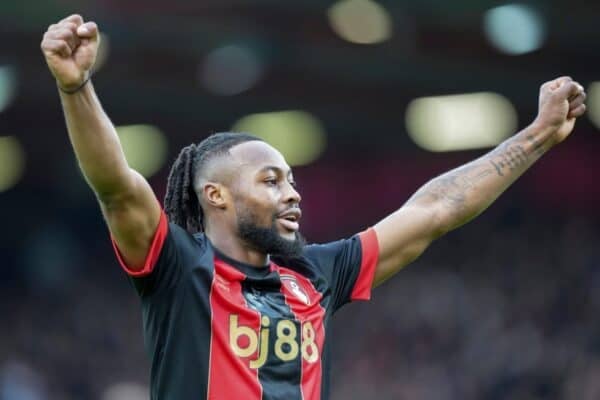
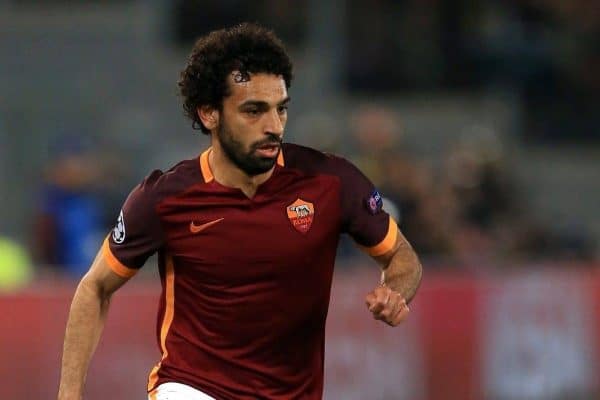
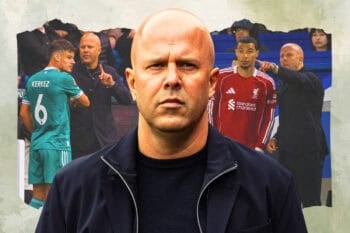
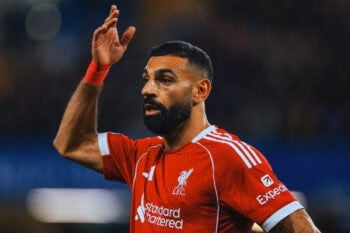
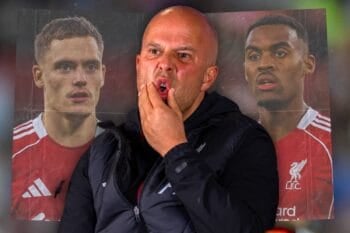

Fan Comments